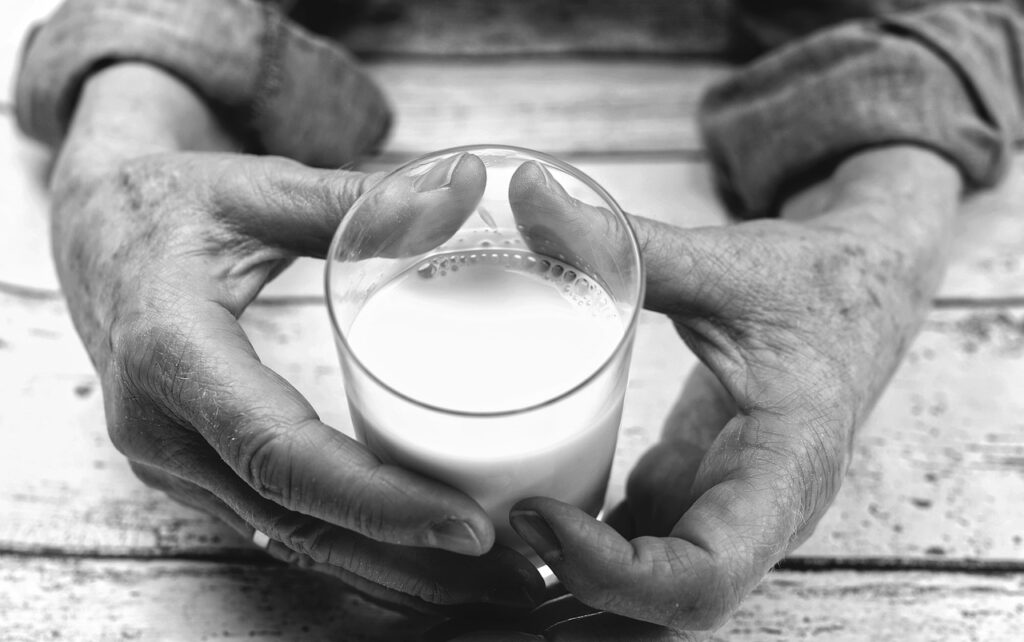Raw Milk Is The Best Milk, And Some States Are Changing Laws To Let You Buy It
The sale of raw milk is a contentious subject in the United States, with proponents believing that raw milk is nutritionally superior to pasteurized versions, and as the debate rages on, Washington state legislature is slated to vote on how accessible to make the sale of raw milk on February 17, 2023.
This article is more than 2 years old

Raw milk and whether or not it should be consumed is a hotly debated topic in the United States, although supporters of drinking raw milk firmly believe that it’s nutritionally superior to the pasteurized version sold in stores nationally. Some states strictly prohibit it, while others allow it to be sold direct-to-consumer.
Then there are those with laws that fall somewhere in between. In Washington, it is legal for it to be sold at the consumer level with some strict standards attached, but on February 17th its state legislature is set to vote on whether or not raw milk regulations should be further relaxed.
Under Washington’s current HB1490 Bill and the Washington Milk and Milk Products Act, large-scale and commercial sellers must be licensed by the Washington State Department of Agriculture (WSDA). Food Safety News explained that the WSDA established guidelines for sellable raw milk based on provisions specified by the Pasteurized Milk Ordinance (PMO). Based on those guidelines, before being eligible for sale, the cow-fresh milk must test negative for drugs and not have bacteria levels that exceed 100,000 per milliliter.
In Washington, smaller farms are exempt from the above regulations as long as the sellers test and label the milk according to the Washington Milk and Milk Products Act standards, which are similar to but not as stringent as the ones outlined by the WSDA and PMO. However, in the next few days, the legislature could vote to remove some of the stricter regulations that large-scale direct-to-consumer producers are subject to.
This is a big deal because it ties directly into the larger debate of whether or not milk straight from the cow/goat should or should not be consumed. According to the CDC and the Washington State Department of Health, it is dangerous to ingest raw milk because there are certain bacteria that could be present that could cause serious illness or death. Bacteria that could be present in non-pasteurized milk include but are not limited to, E. Coli, Salmonella, Listeria, and Brucella.
Guillian-Barré syndrome and Hemolytic Uremic Syndrome have also been linked to the consumption of raw milk. The potentially fatal consequences associated with ingesting non-pasteurized milk are why many states have outlawed it in favor of selling only pasteurized milk. That said, proponents of drinking raw milk believe that the pasteurization process degrades milk’s inherent nutritional profile.
Although raw milk is legally sellable in Washington, the state’s current strict standards help to ensure that it is safe to drink. Relaxing the standards would make it easier to sell raw milk directly to the consumer but it could leave raw milk drinkers more vulnerable to certain illnesses. What happens in Washington could also potentially influence other states where the sale of non-pasteurized milk is legal.
States The Allow The Sale Of Raw Milk (Farms And Stores)
- Arizona – Warning label and license required
- California – Legal when “milk market” standards are met
- Connecticut- Permit required
- Idaho- Permit required
- Maine – Warning label required
- Massachusetts – Legal based on local ordinance laws
- Missouri – Permit required
- Nevada
- New Hampshire
- New Mexico- Permit required
- Pennsylvania – Permit required
- South Carolina- Permit required
- South Dakota – License required
- Washington
- West Virginia
States That Allow The Sale Of Raw Milk (Farms Only)
- Arkansas – maximum limit of 500 gallons sold annually
- Illinois – Permit required
- Kansas – Warning label required
- Minnesota – Legal only when occasionally purchased on a farm
- Mississippi – Legal only on farms selling goats milk with no more than nine goats
- Nebraska
- New York – License required
- Oklahoma
- Oregon – Legal on small farms only
- Texas – Permit required
- Utah – Permit required
States That Prohibit The Sale Of Raw Milk
- Alabama
- Alaska
- Colorado
- Delaware
- Washington D.C.
- Florida
- Georgia
- Hawaii
- Indiana
- Iowa
- Louisiana
- Maryland
- Michigan
- Montana
- New Jersey
- North Carolina
- North Dakota
- Tennessee
- Virginia
- Wisconsin
- Wyoming
States With Special Cases And Clauses
- Ohio – The sale of raw milk in Ohio is legal if the vendor has been selling raw milk since before 1965
- Kentucky – Legal on a person-by-person basis w/a doctor’s note
- Rhode Island – Legal on a person-by-person basis w/ a doctor’s note
For in-depth information on the specifics of each state’s laws, click here.



